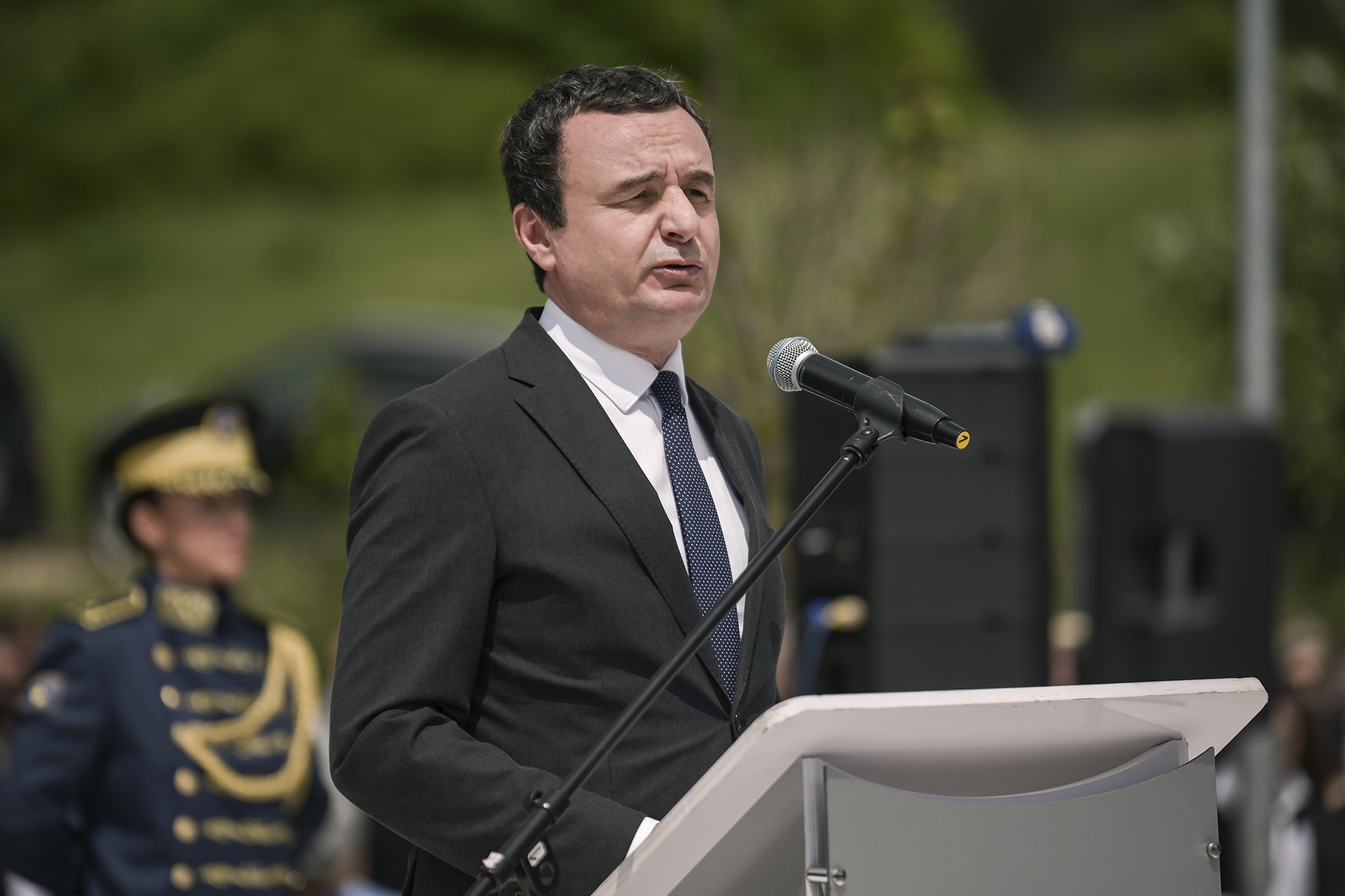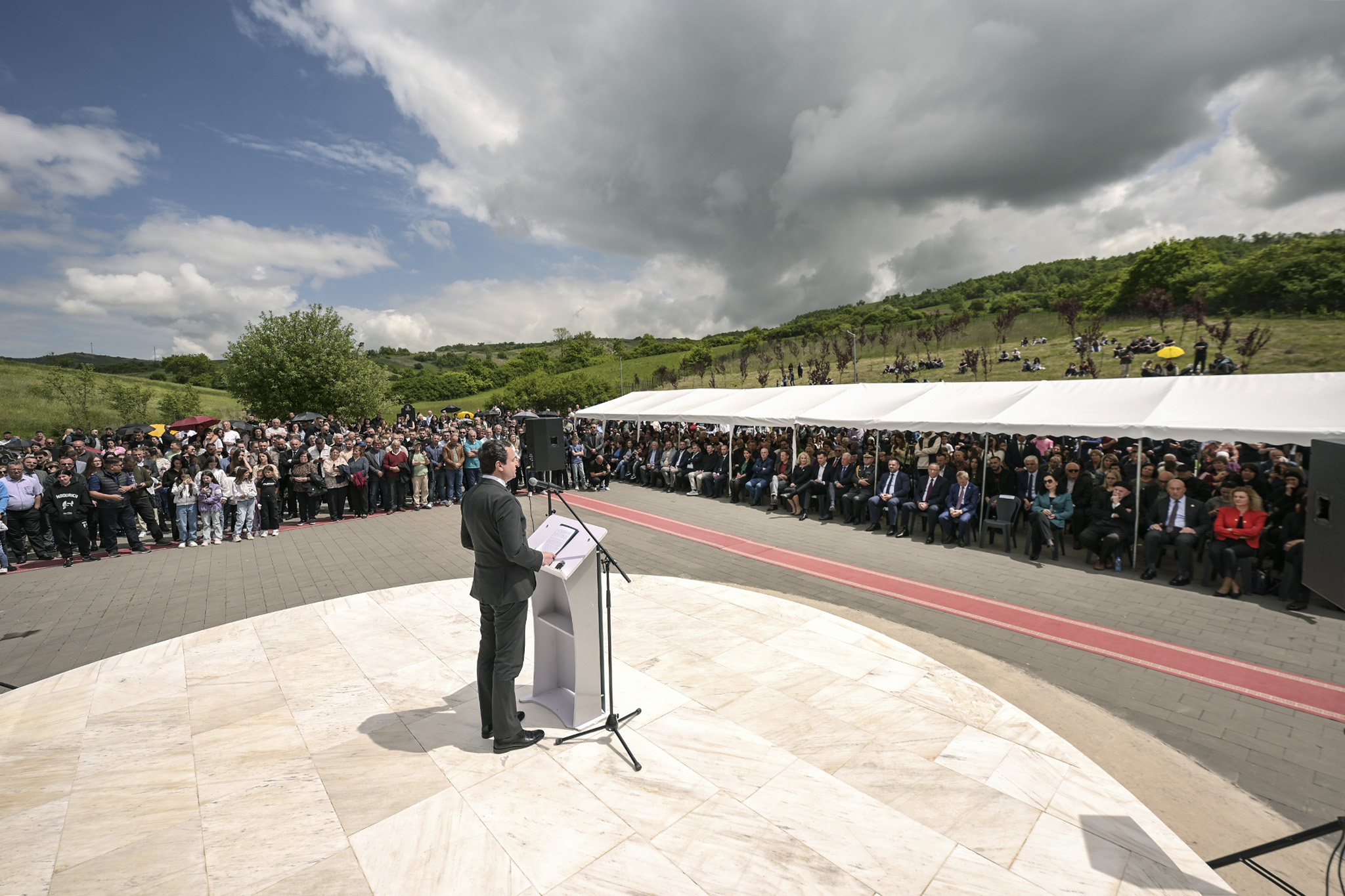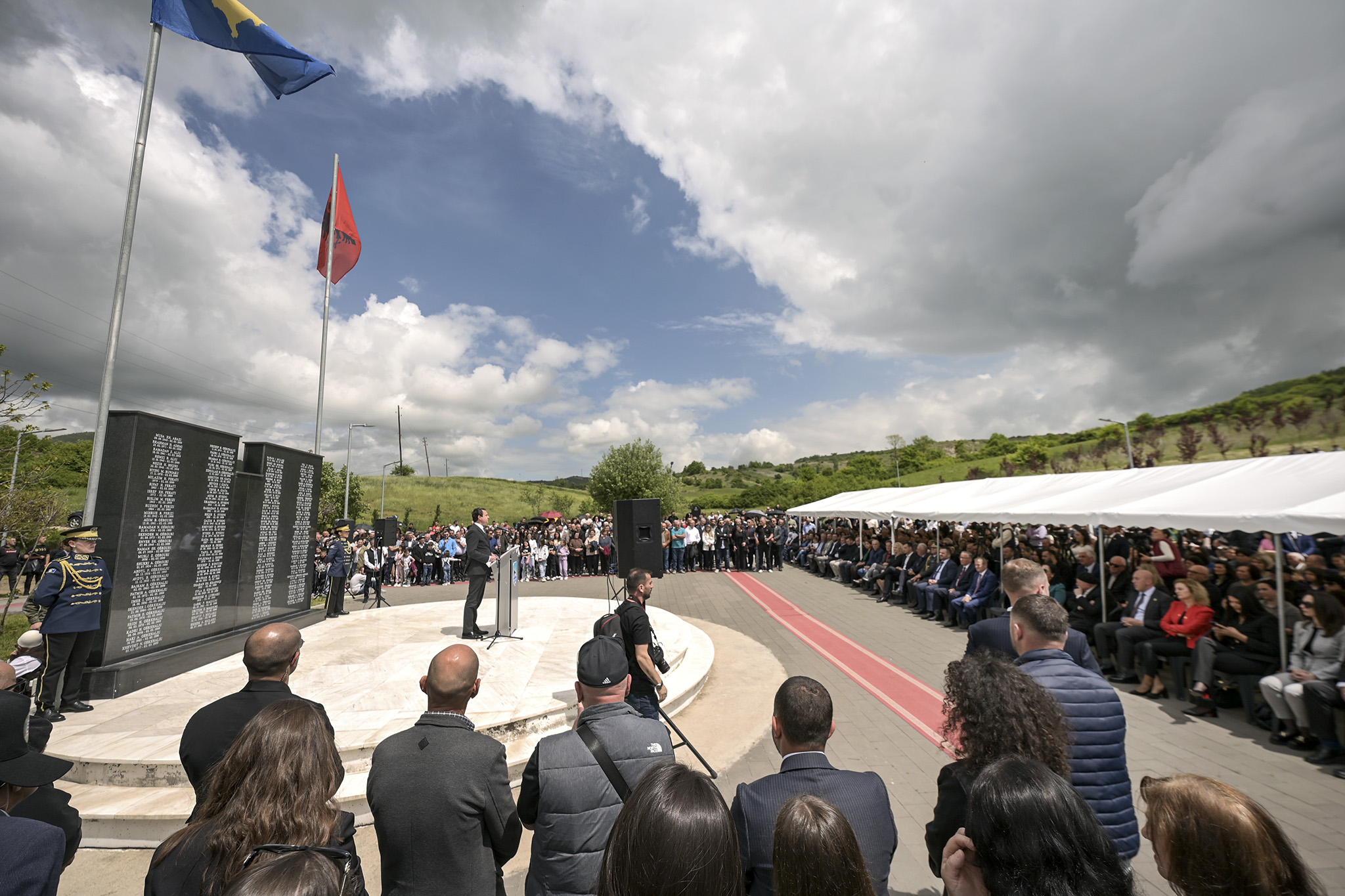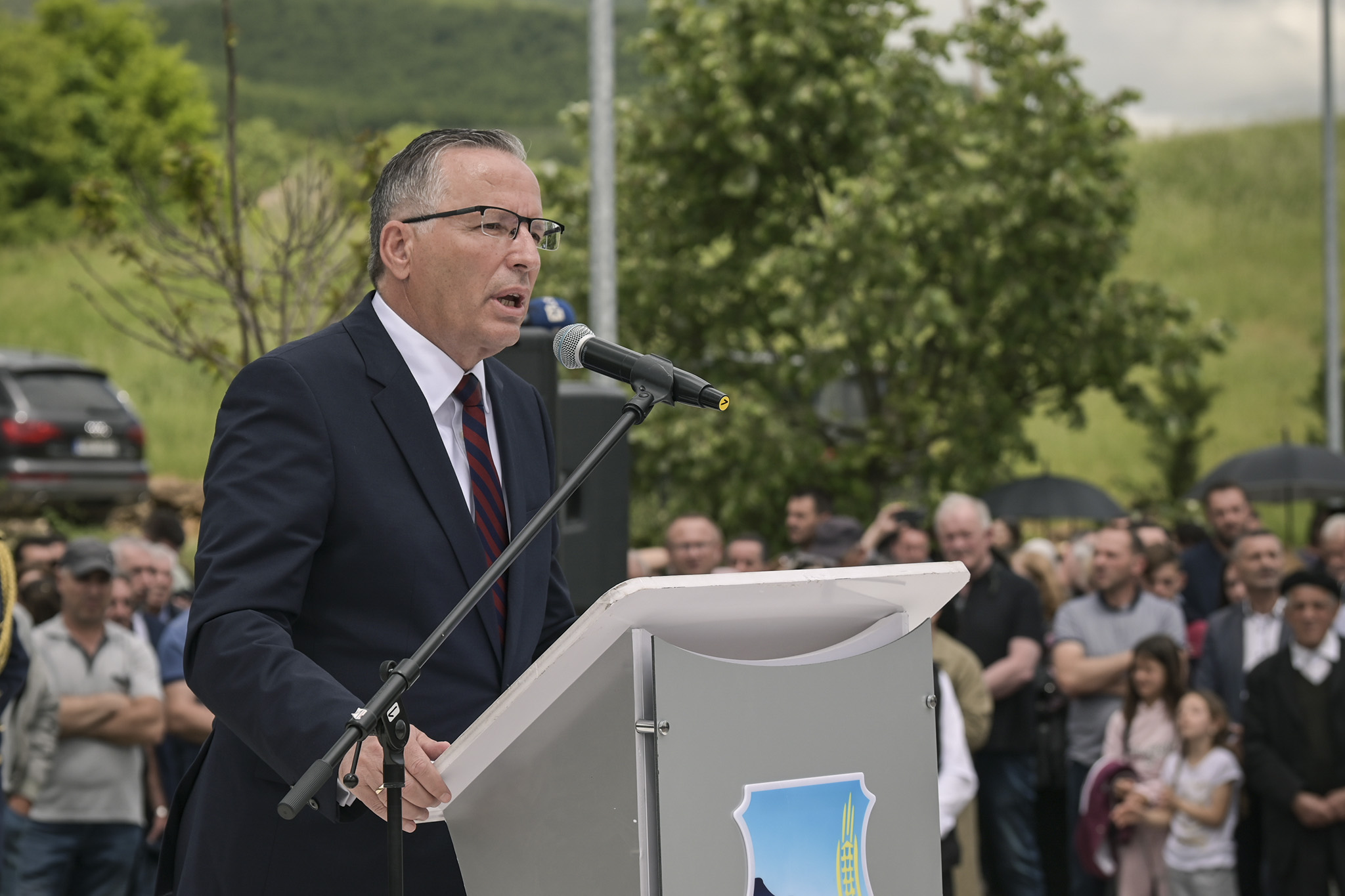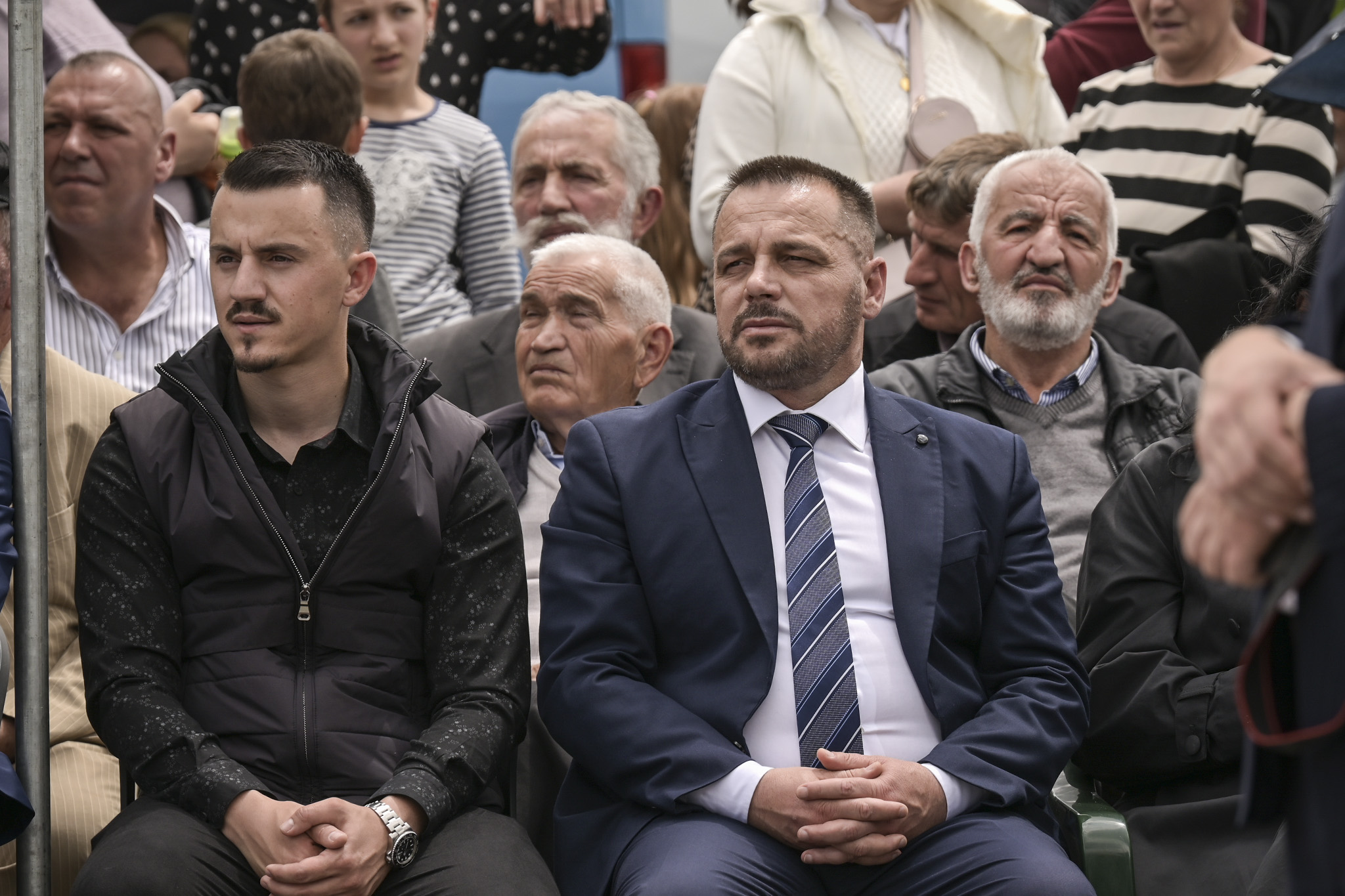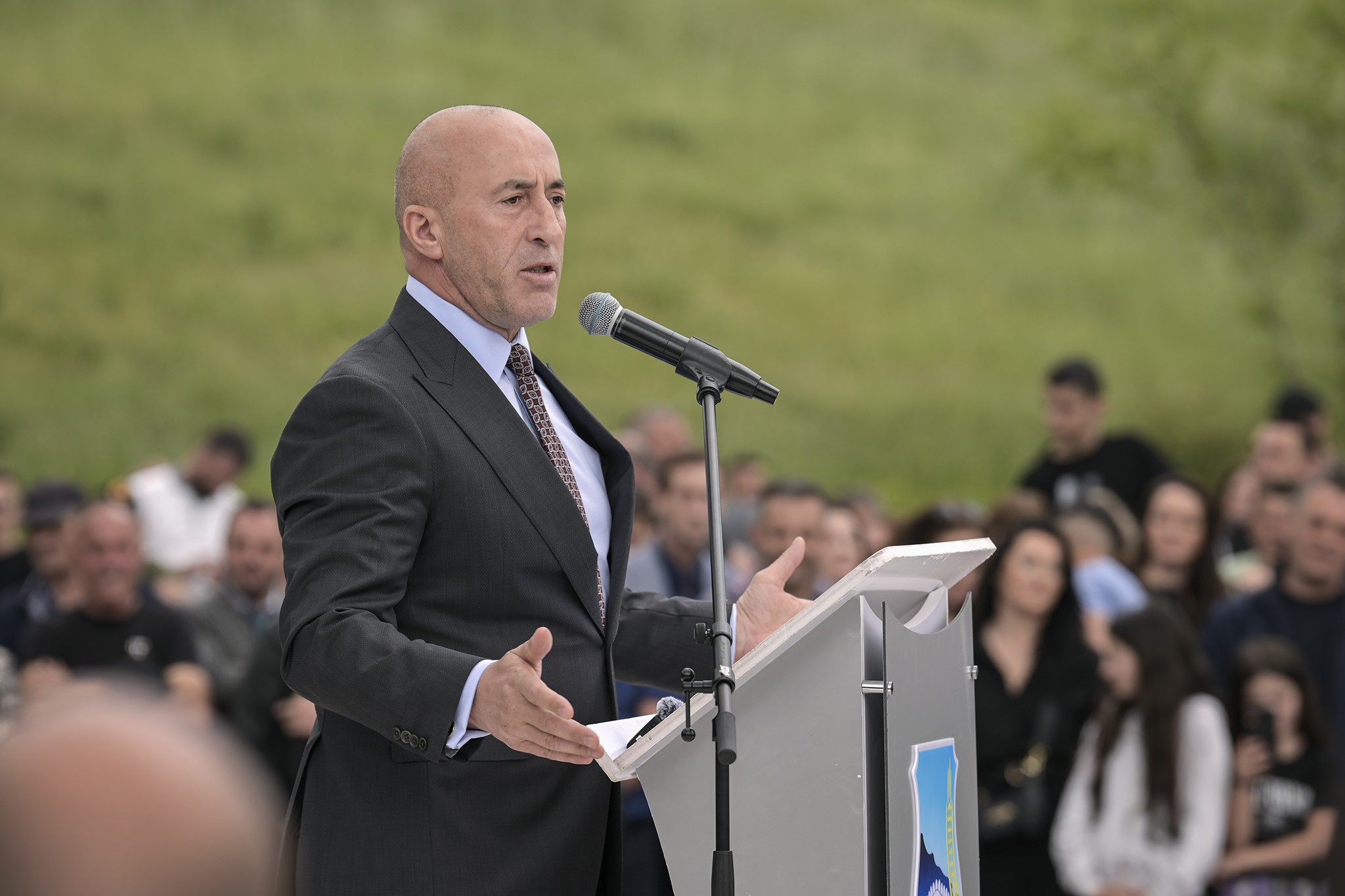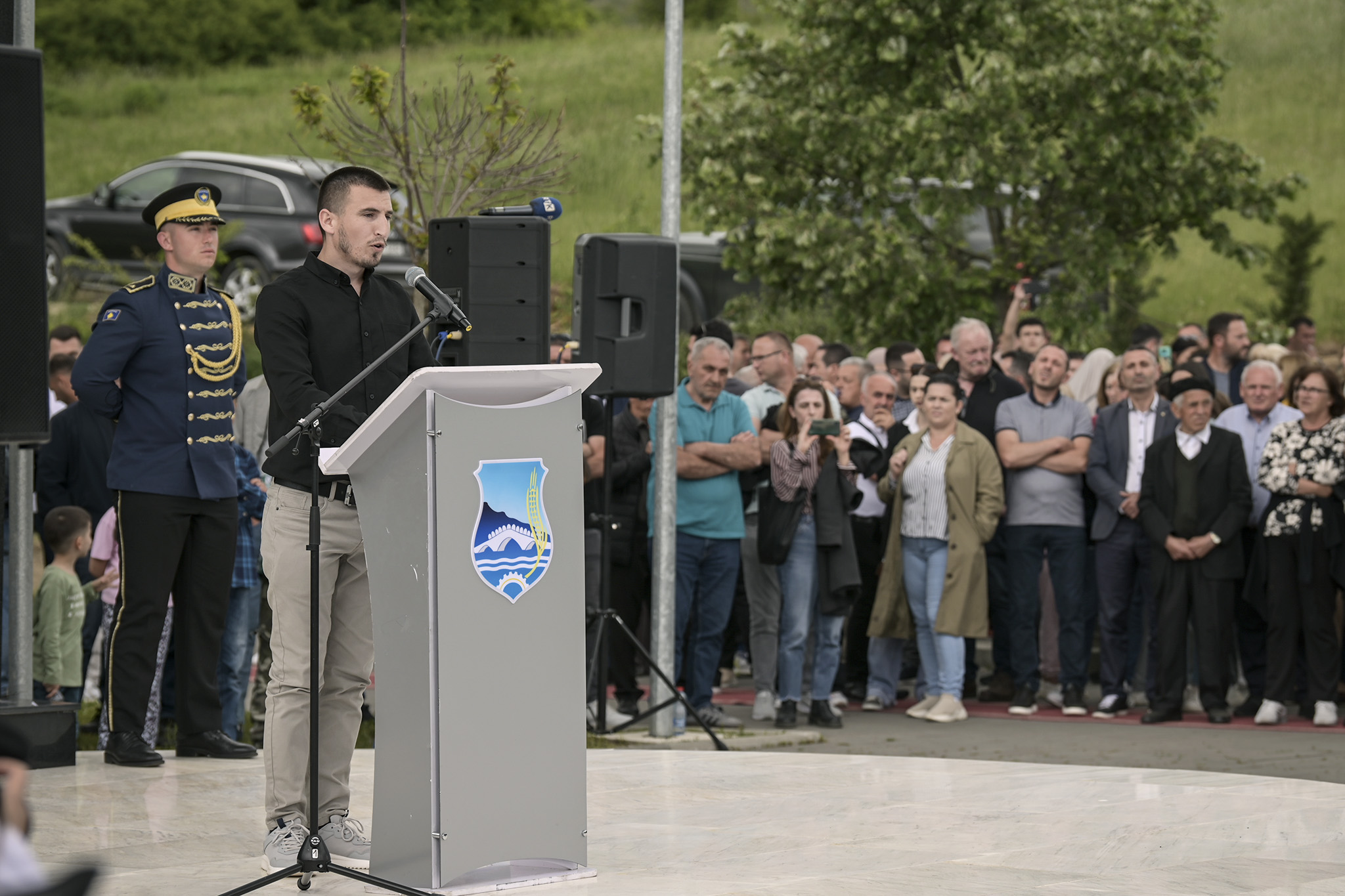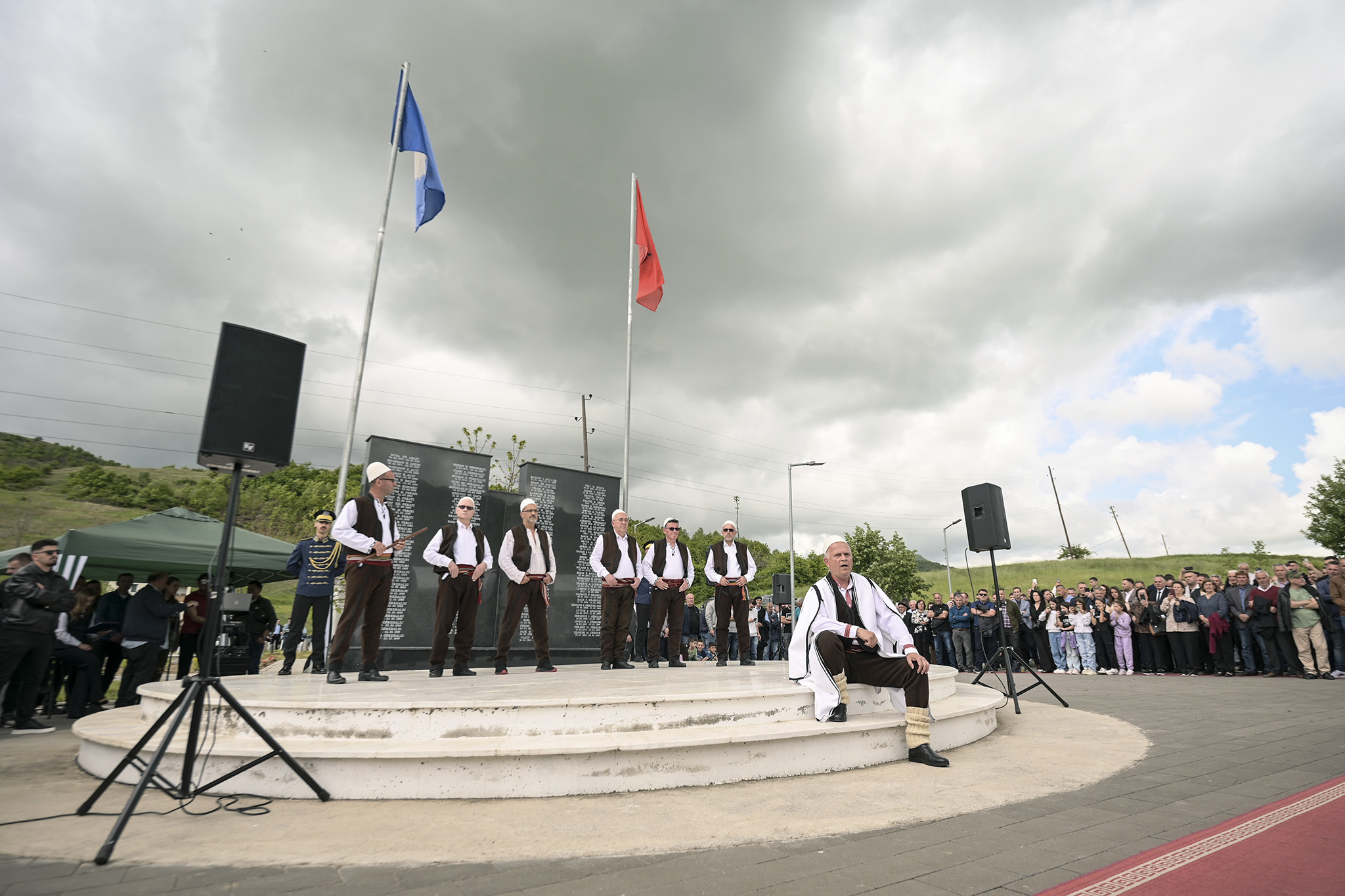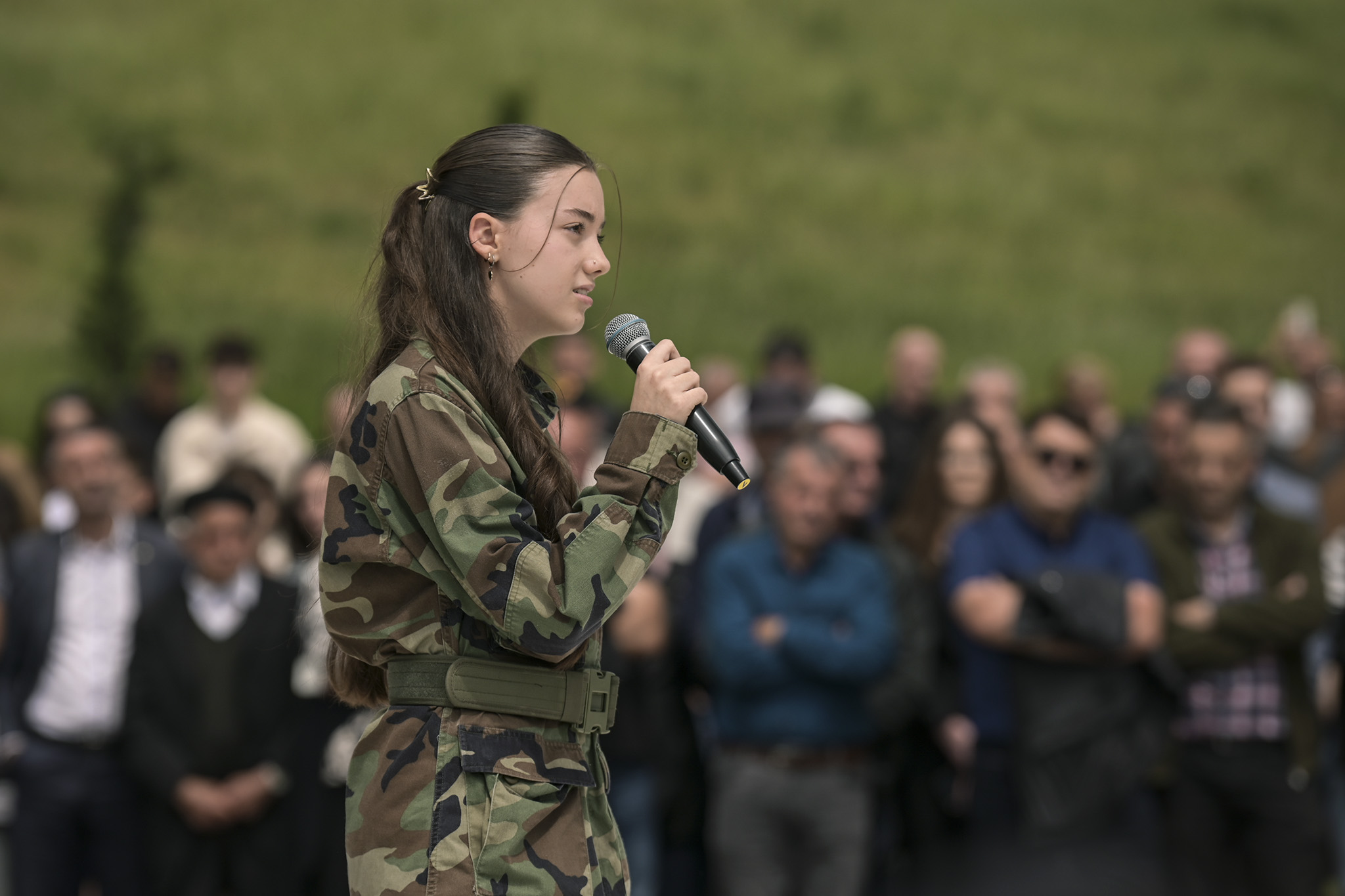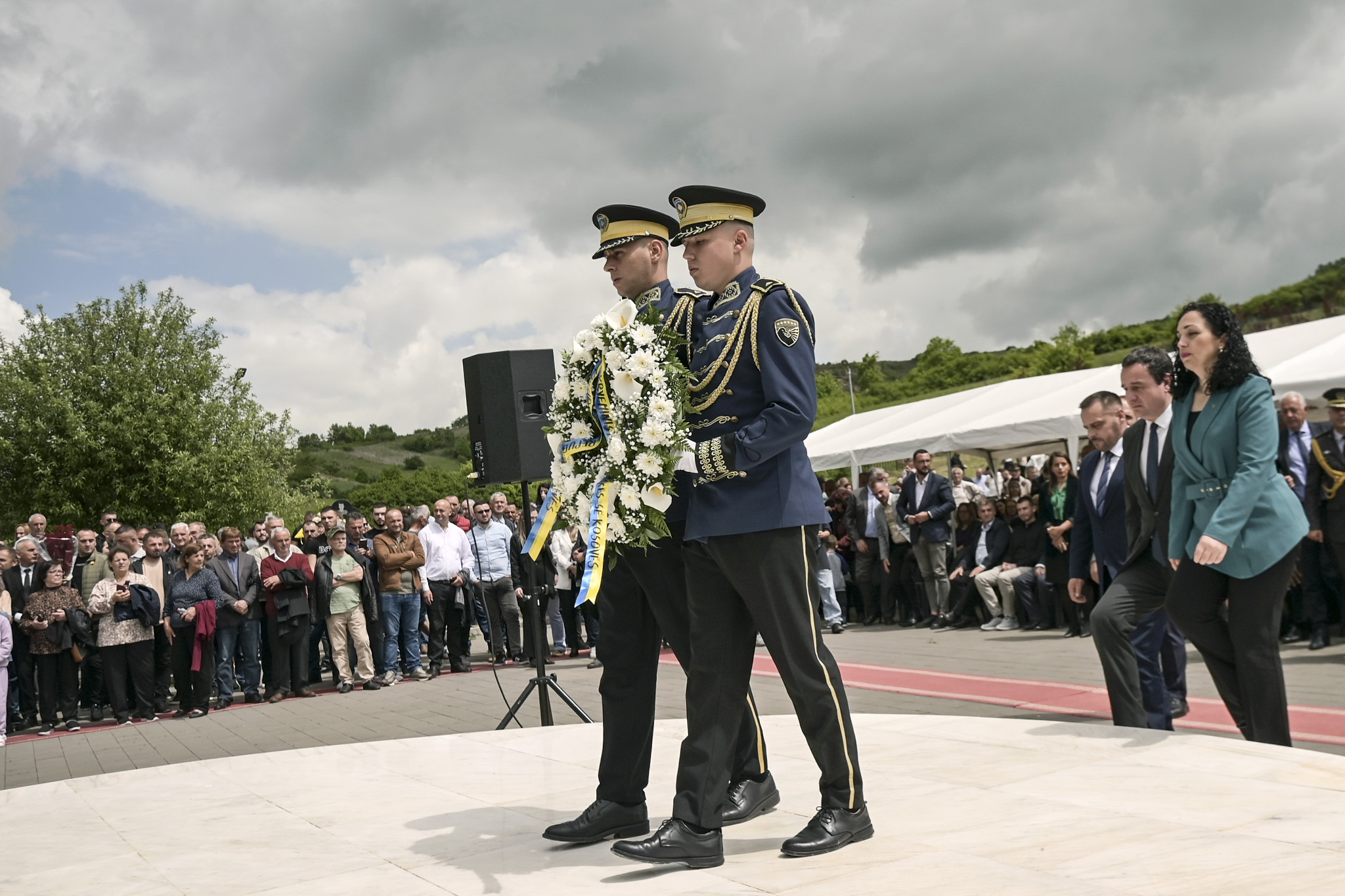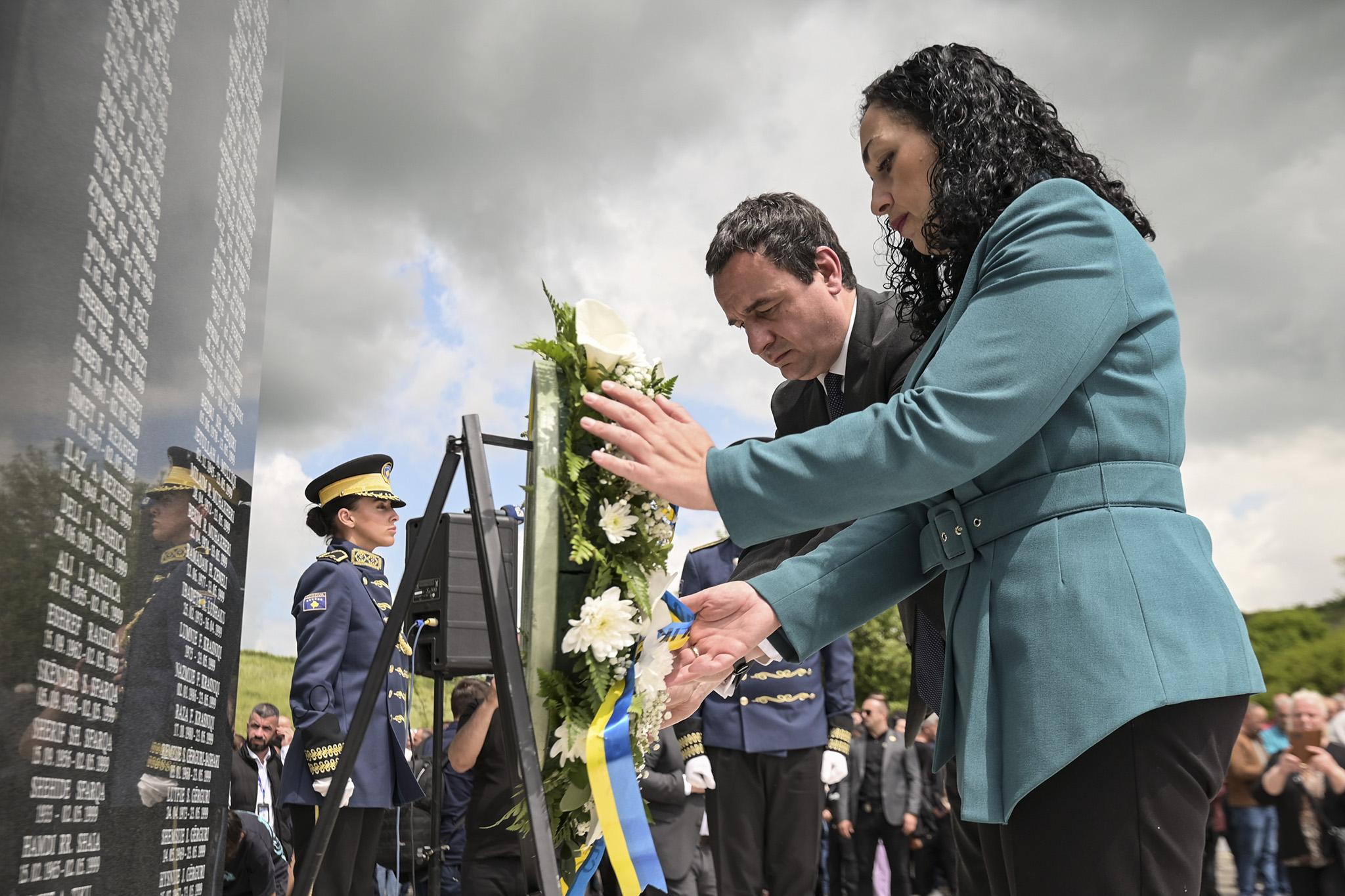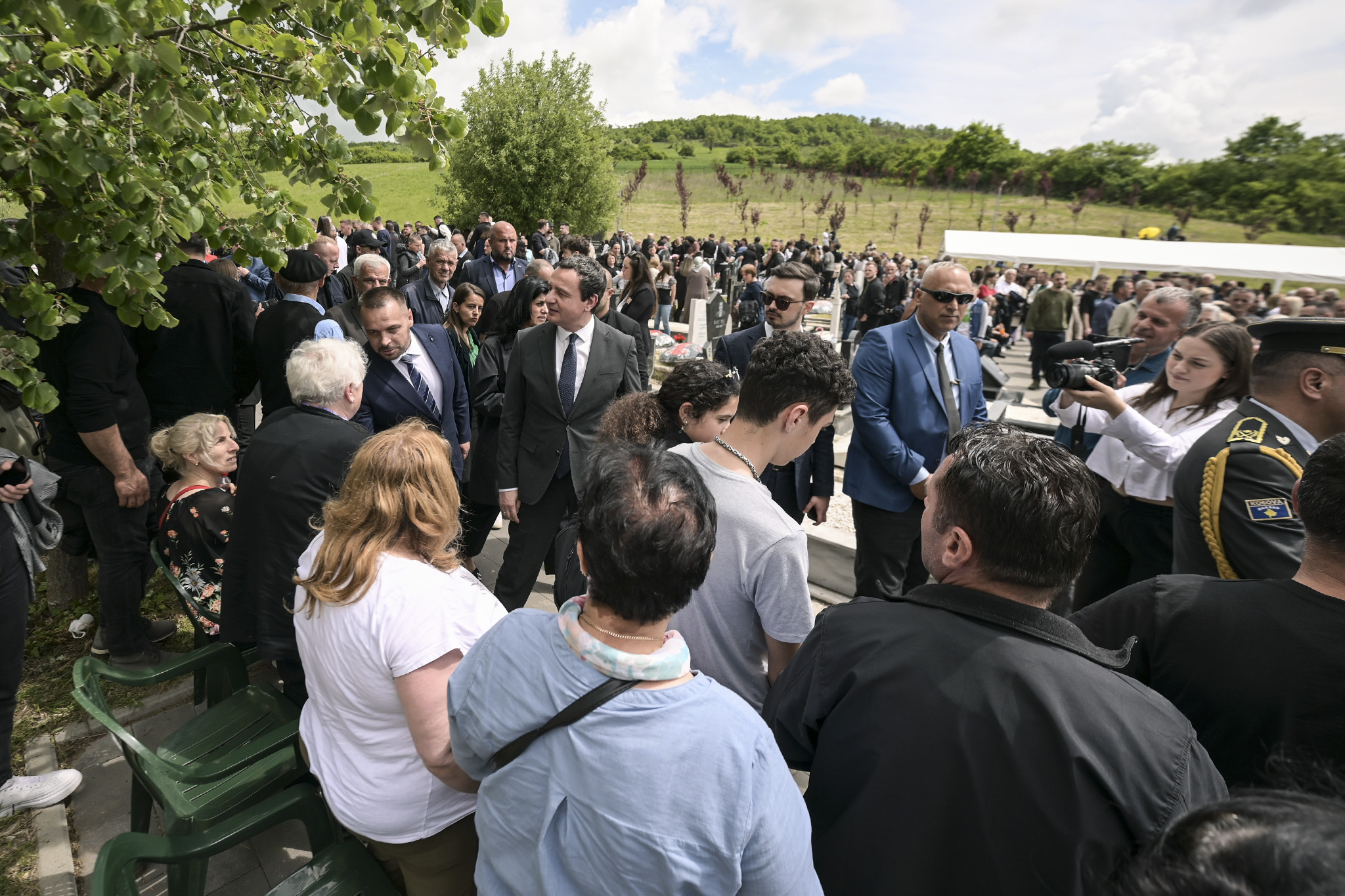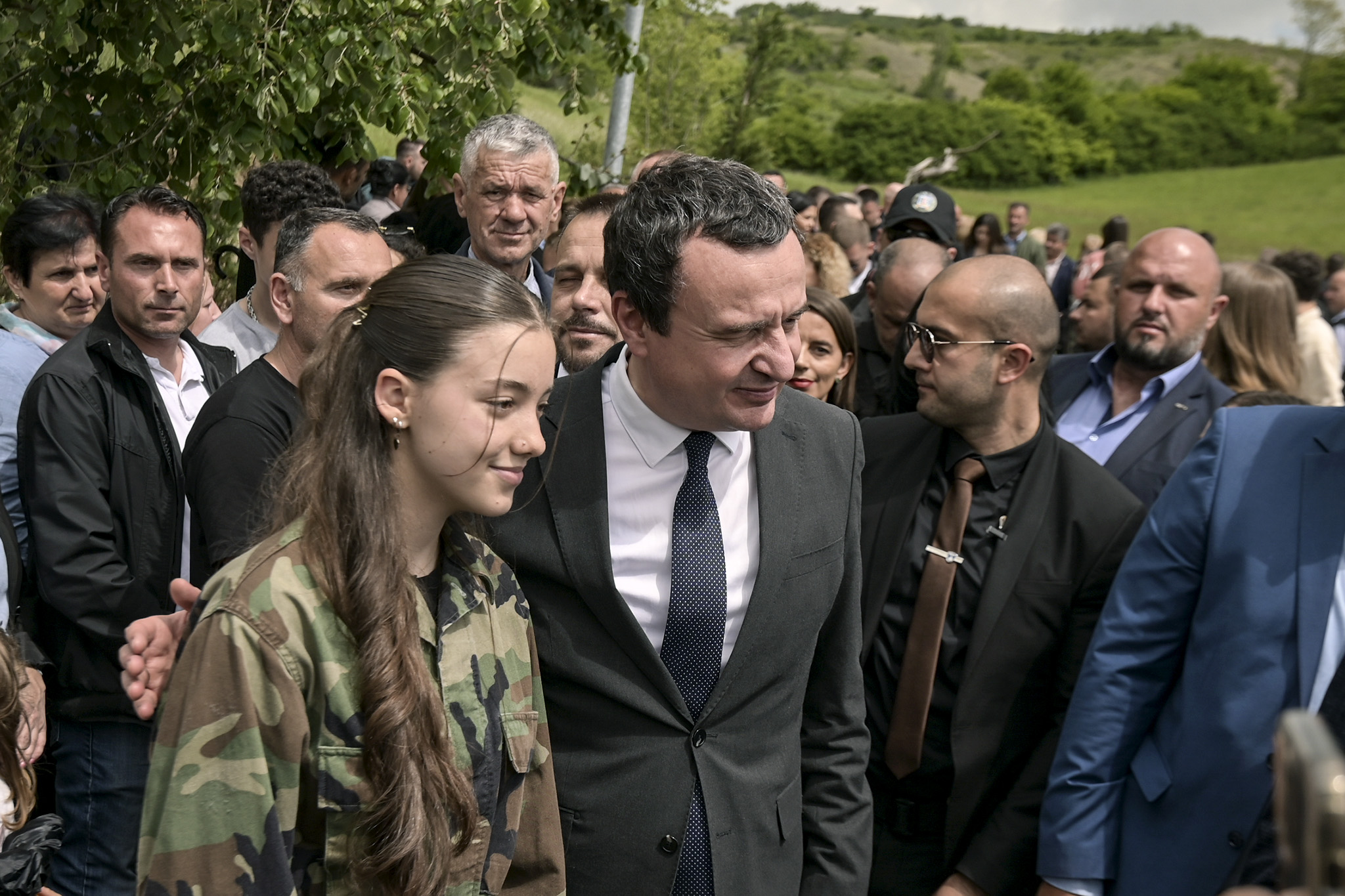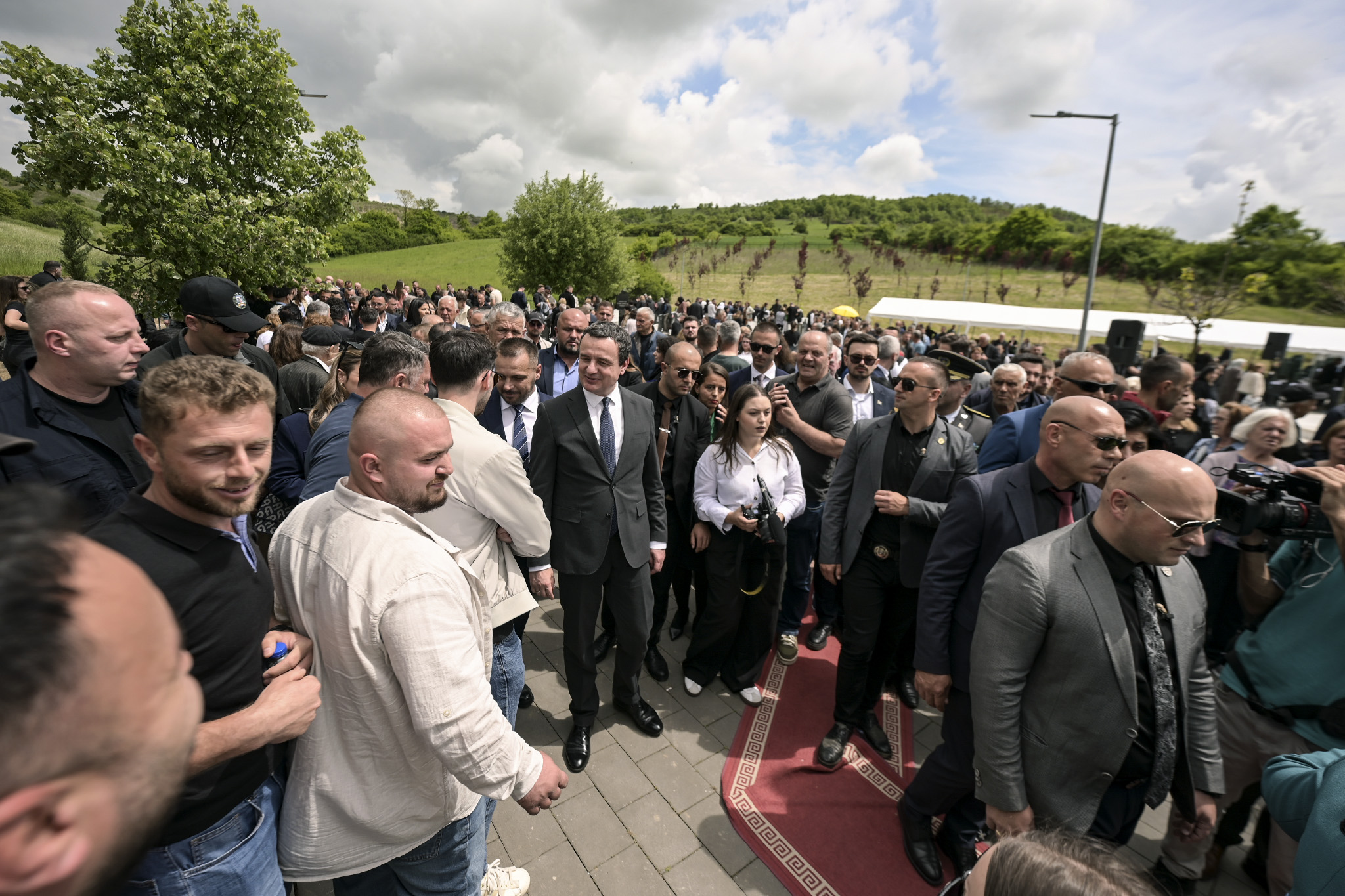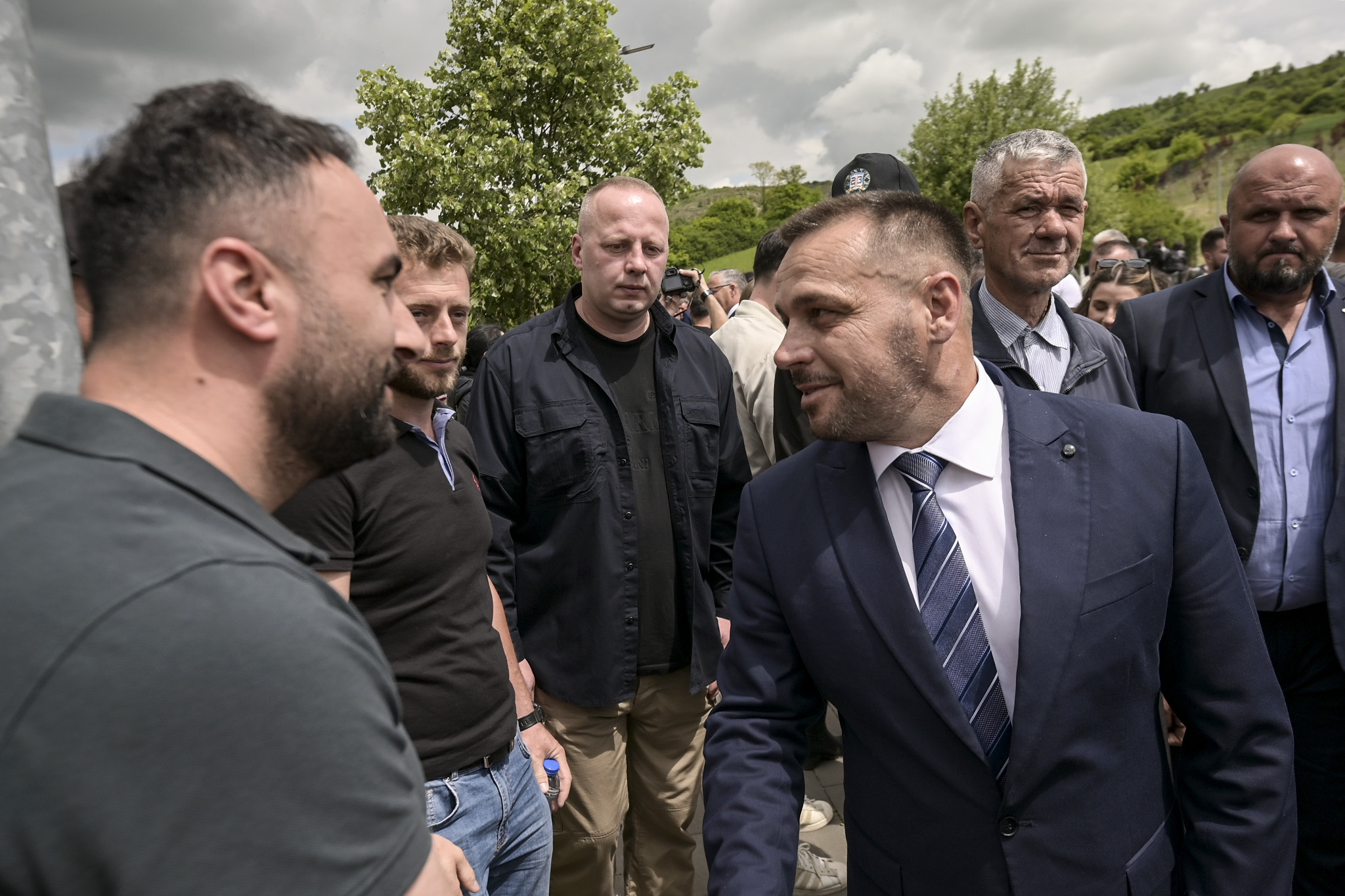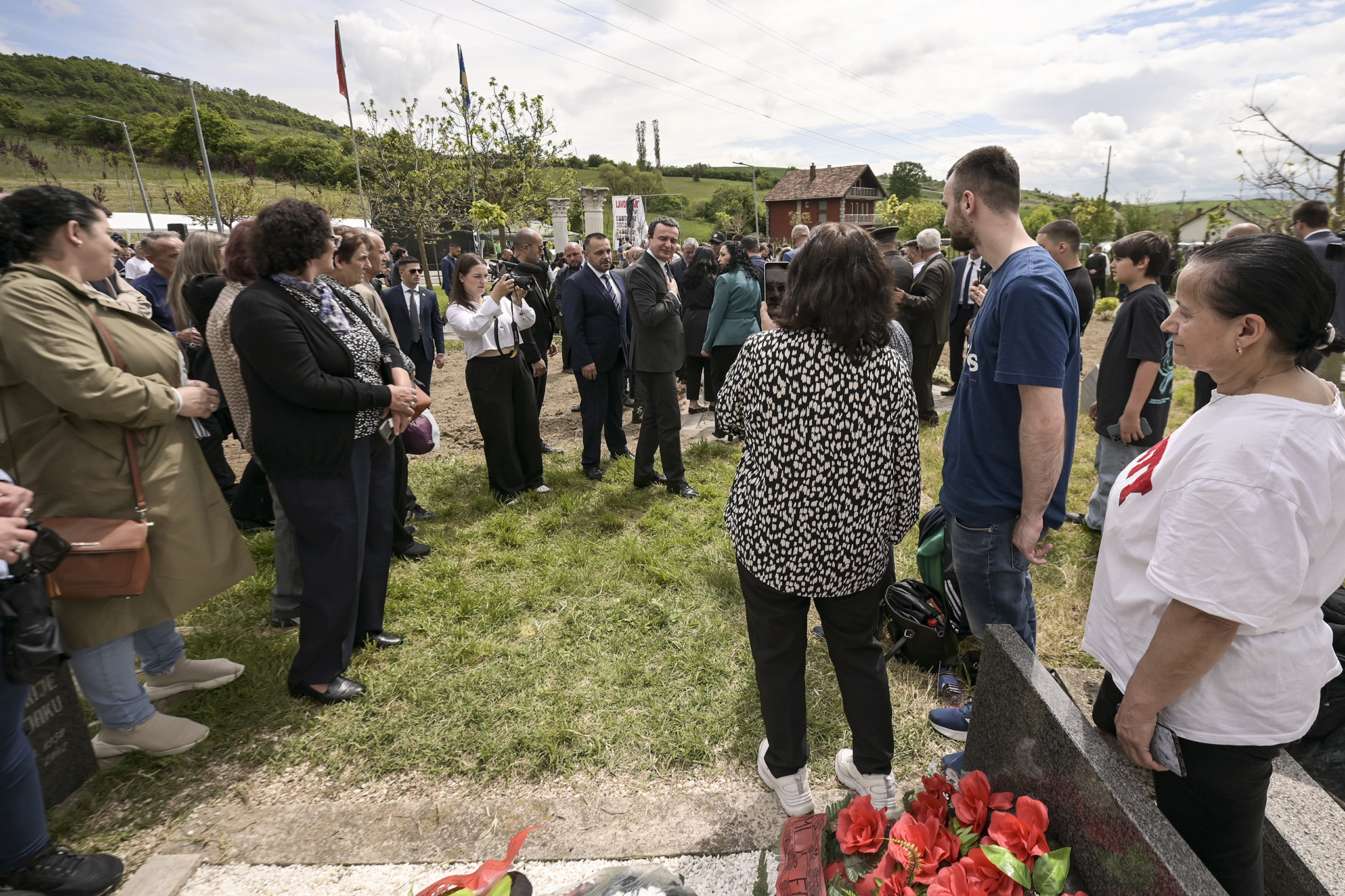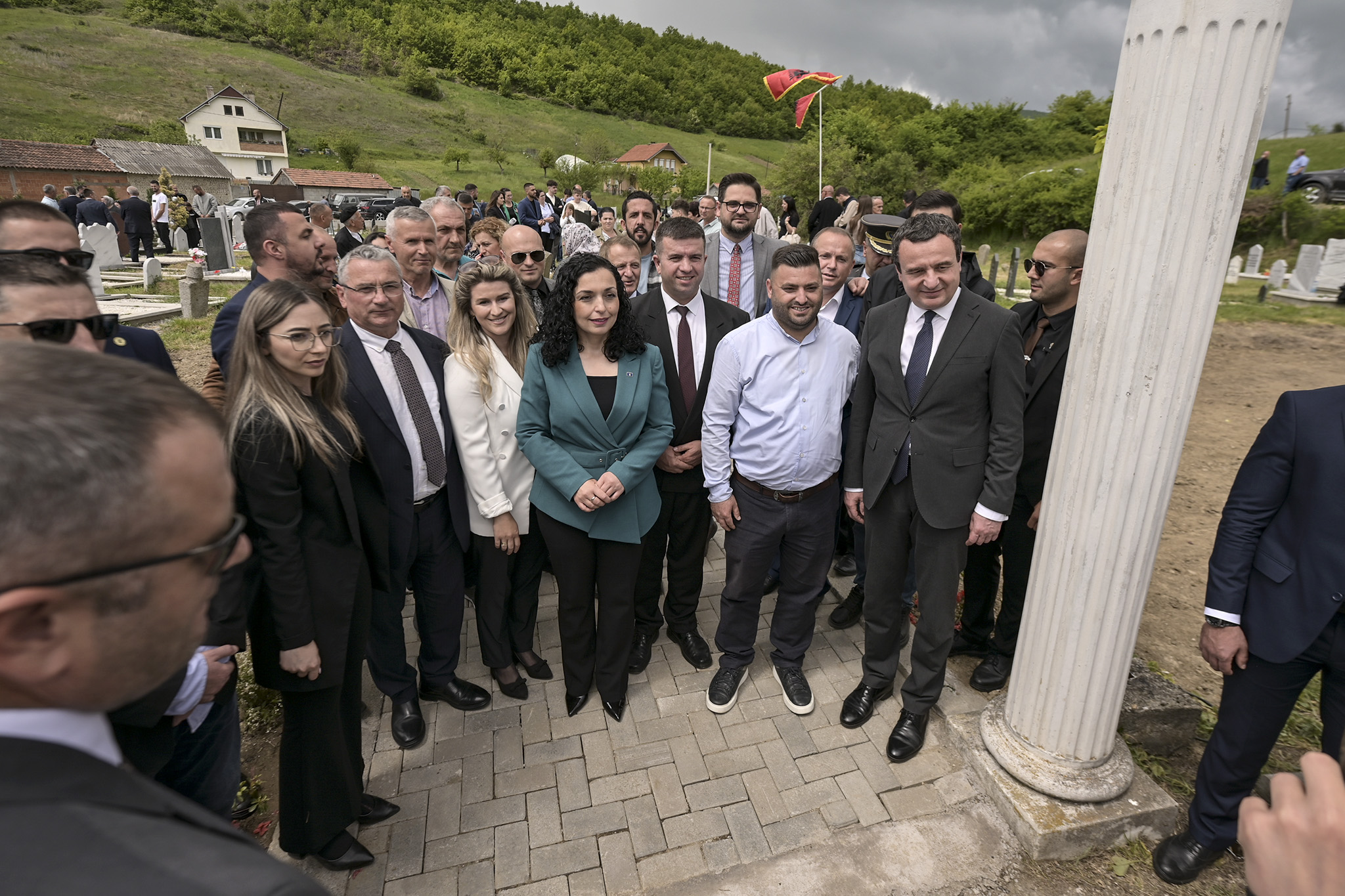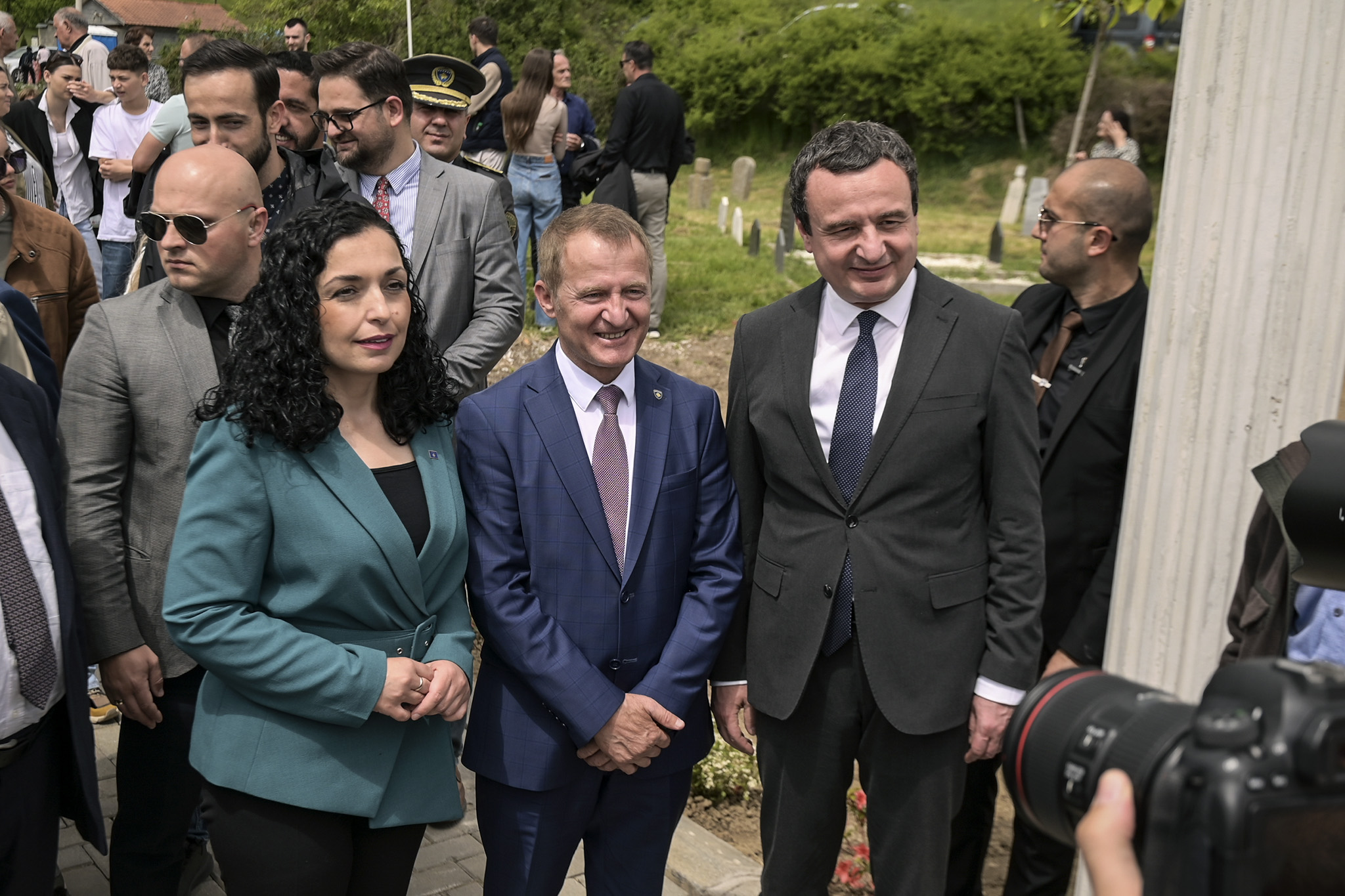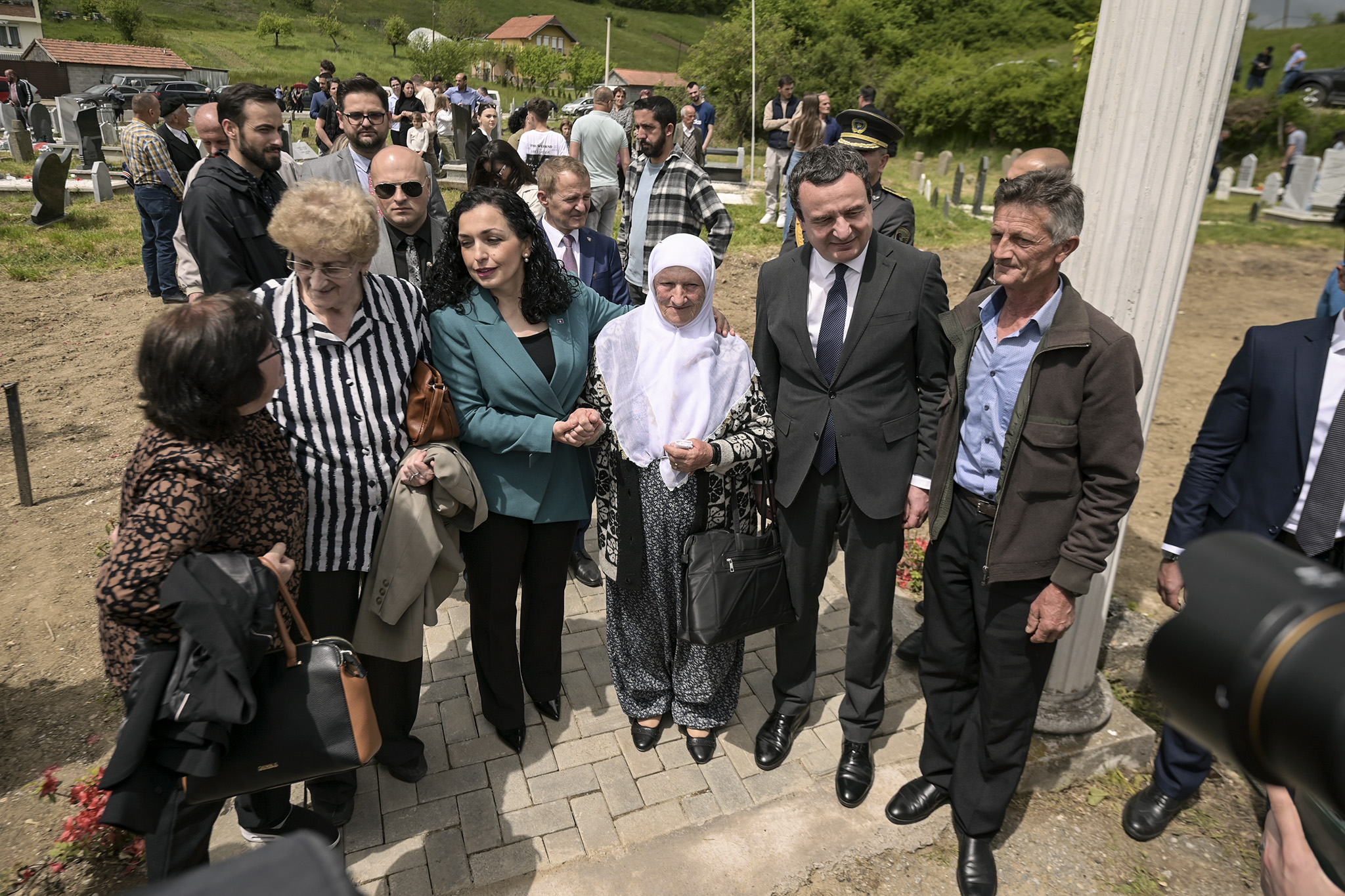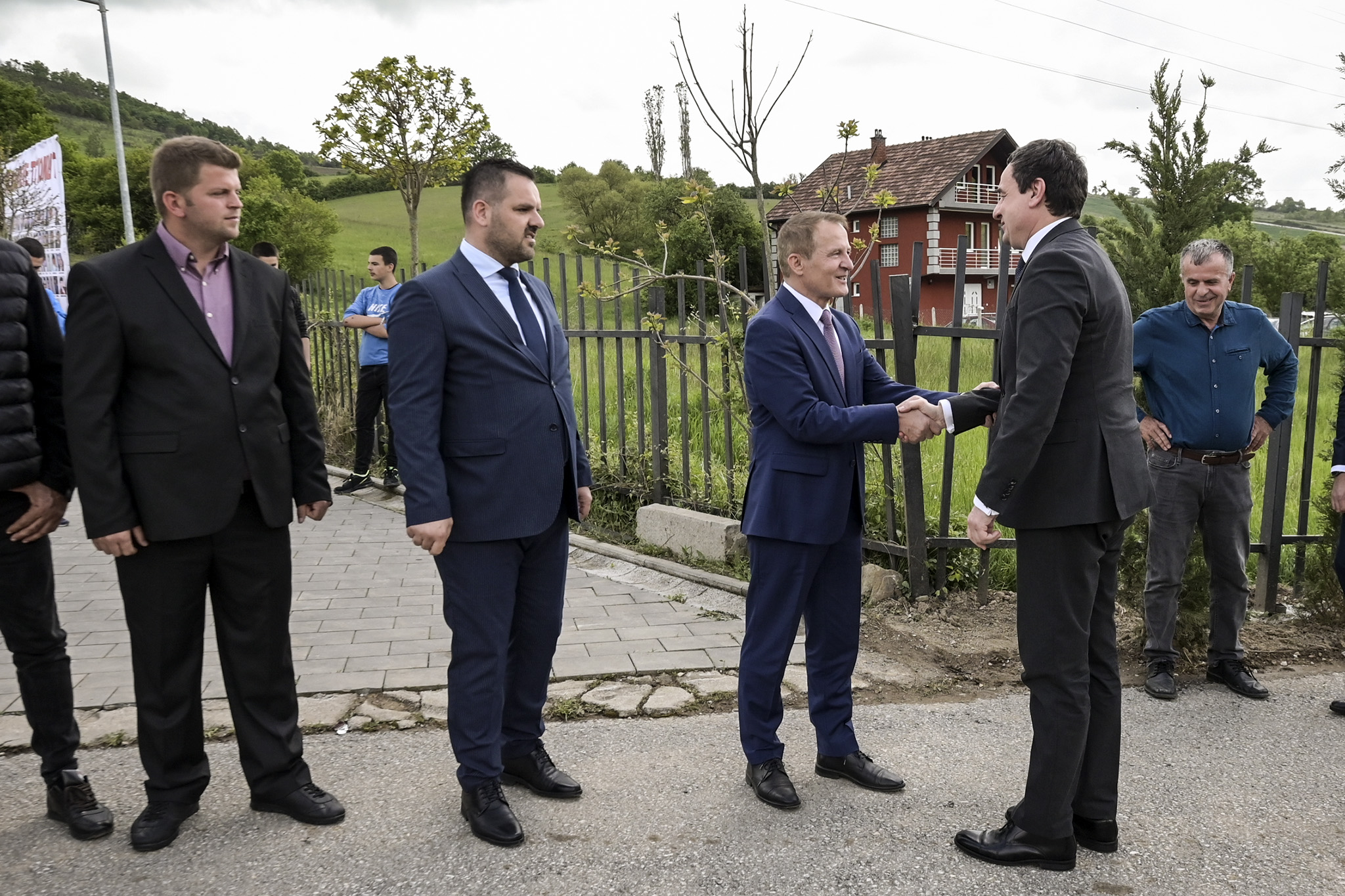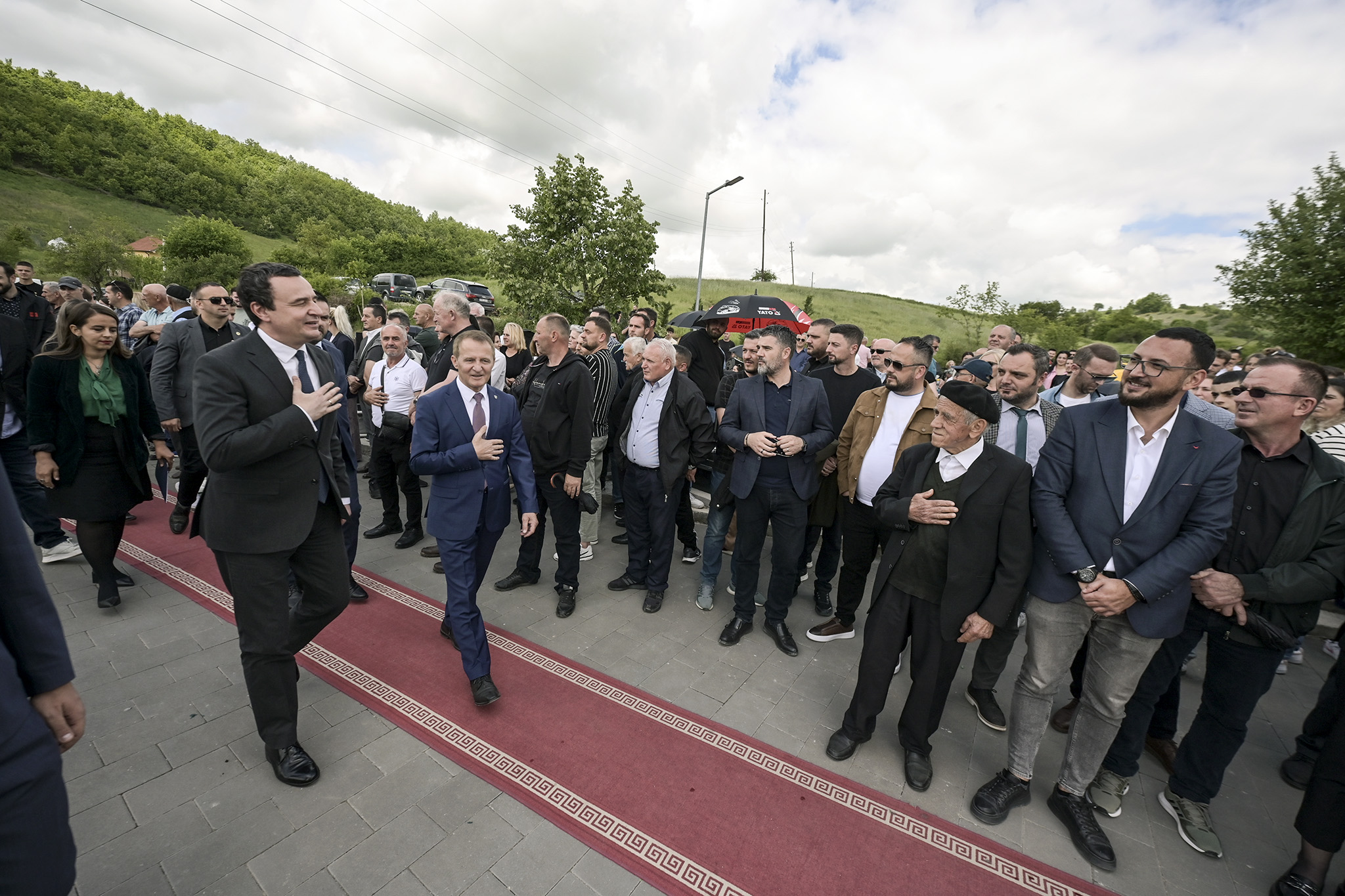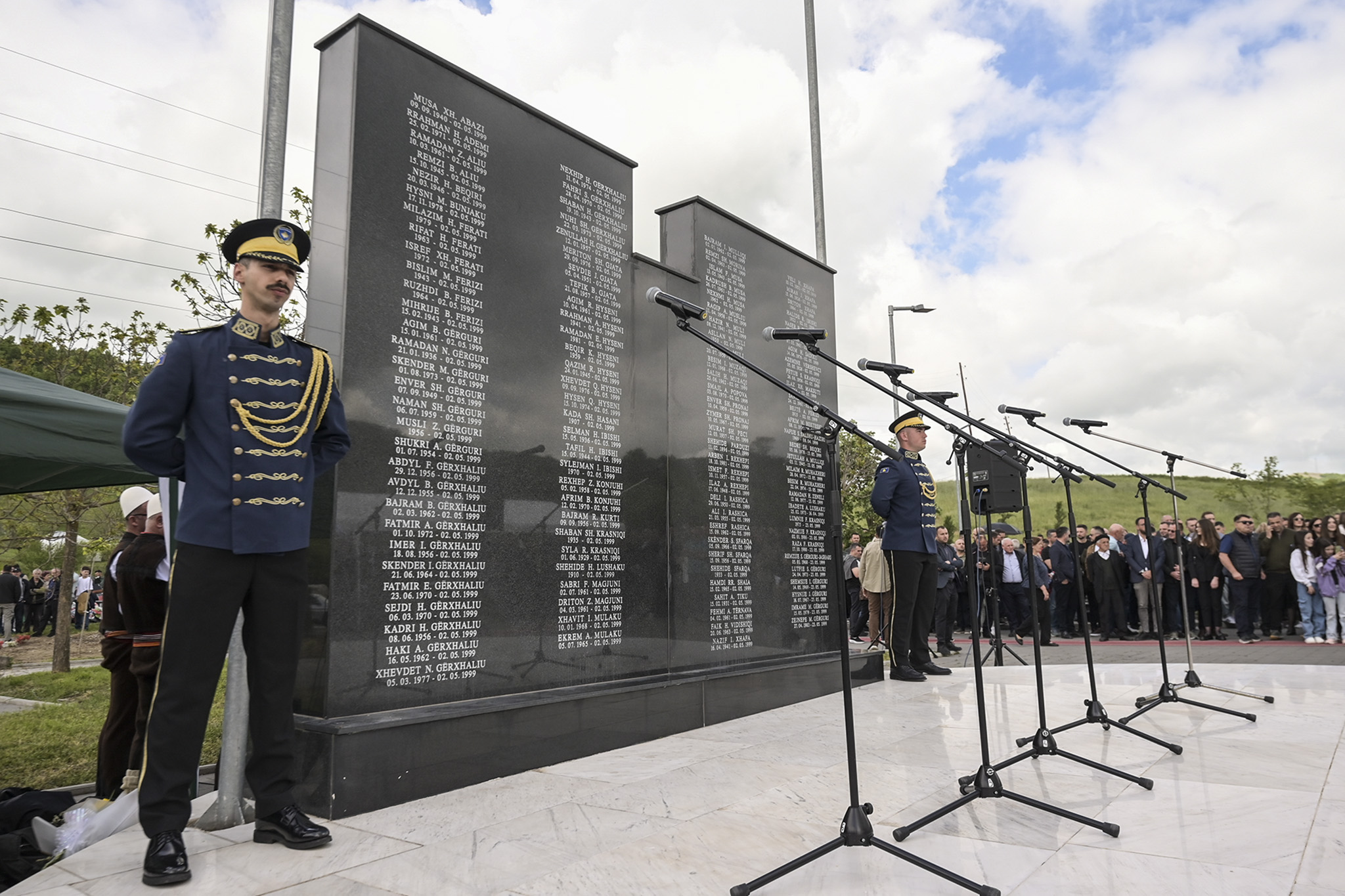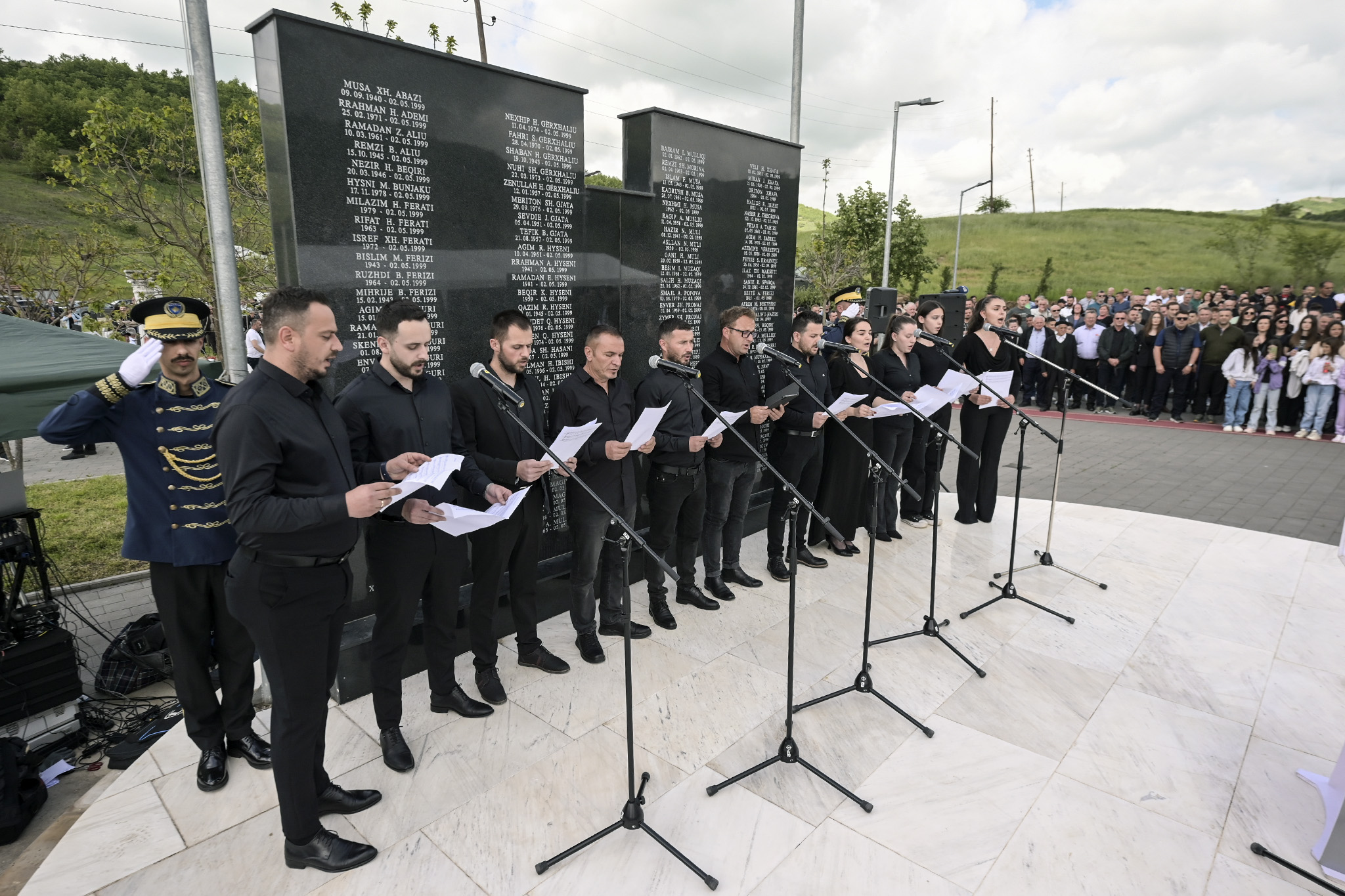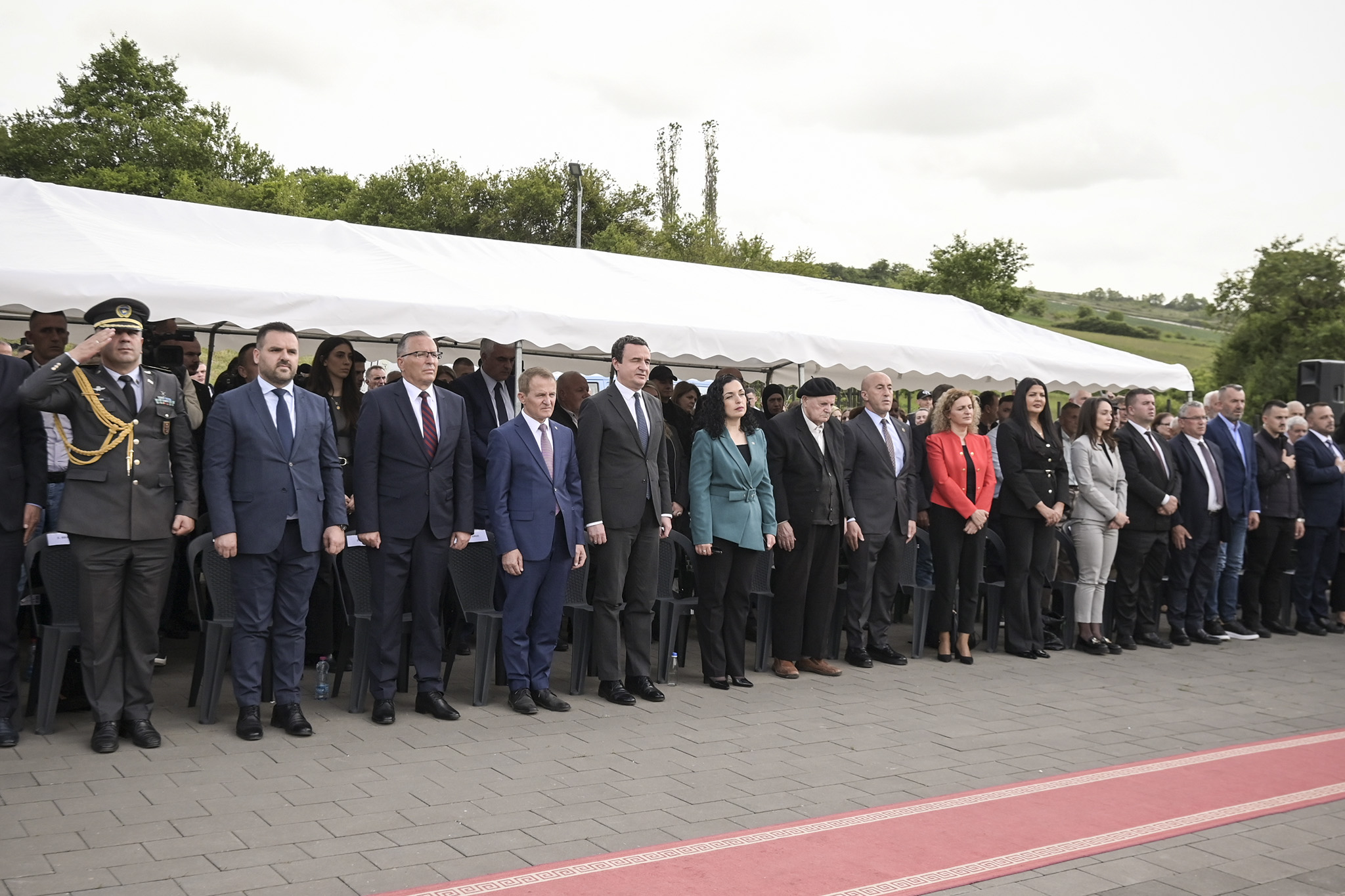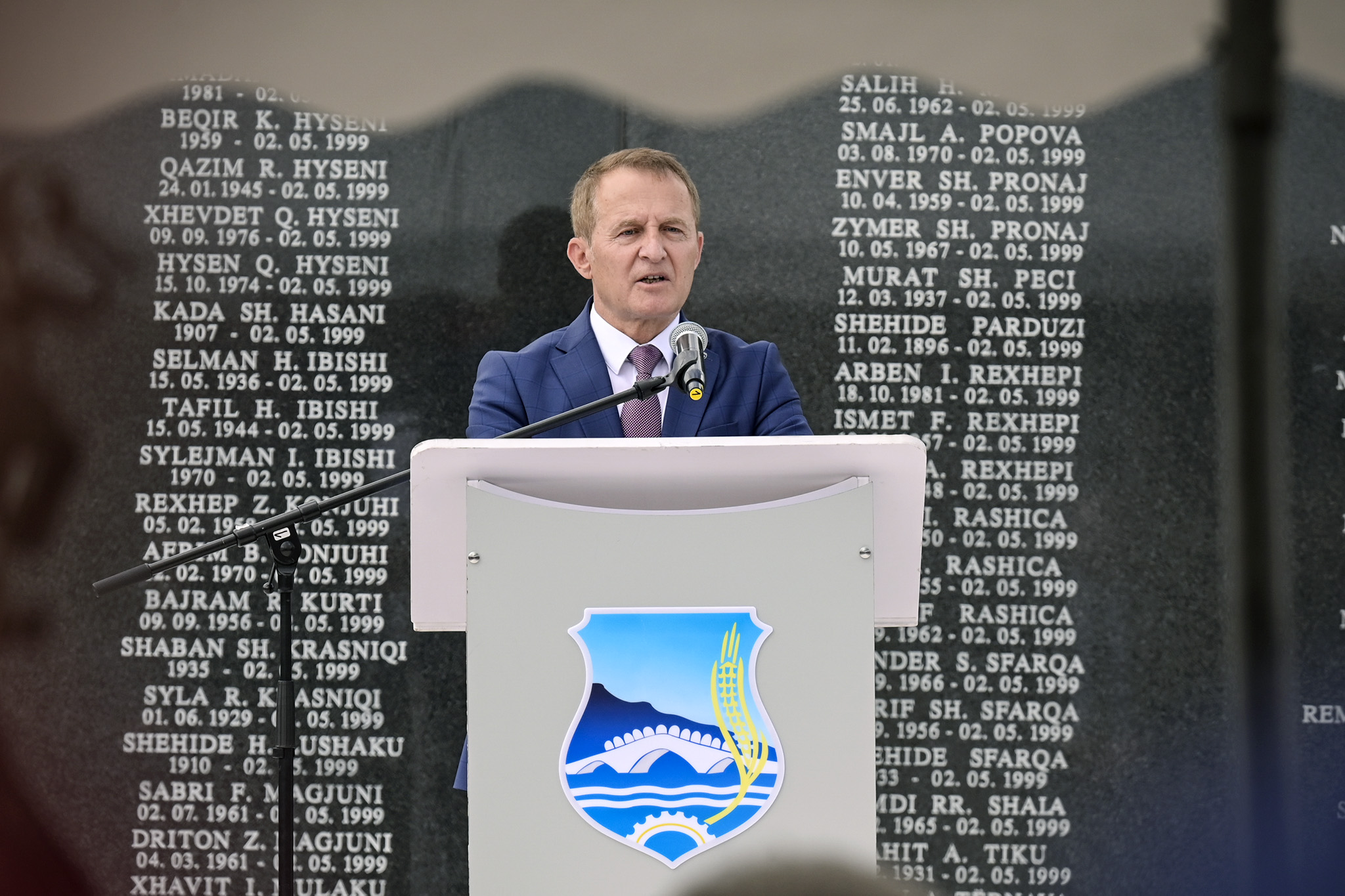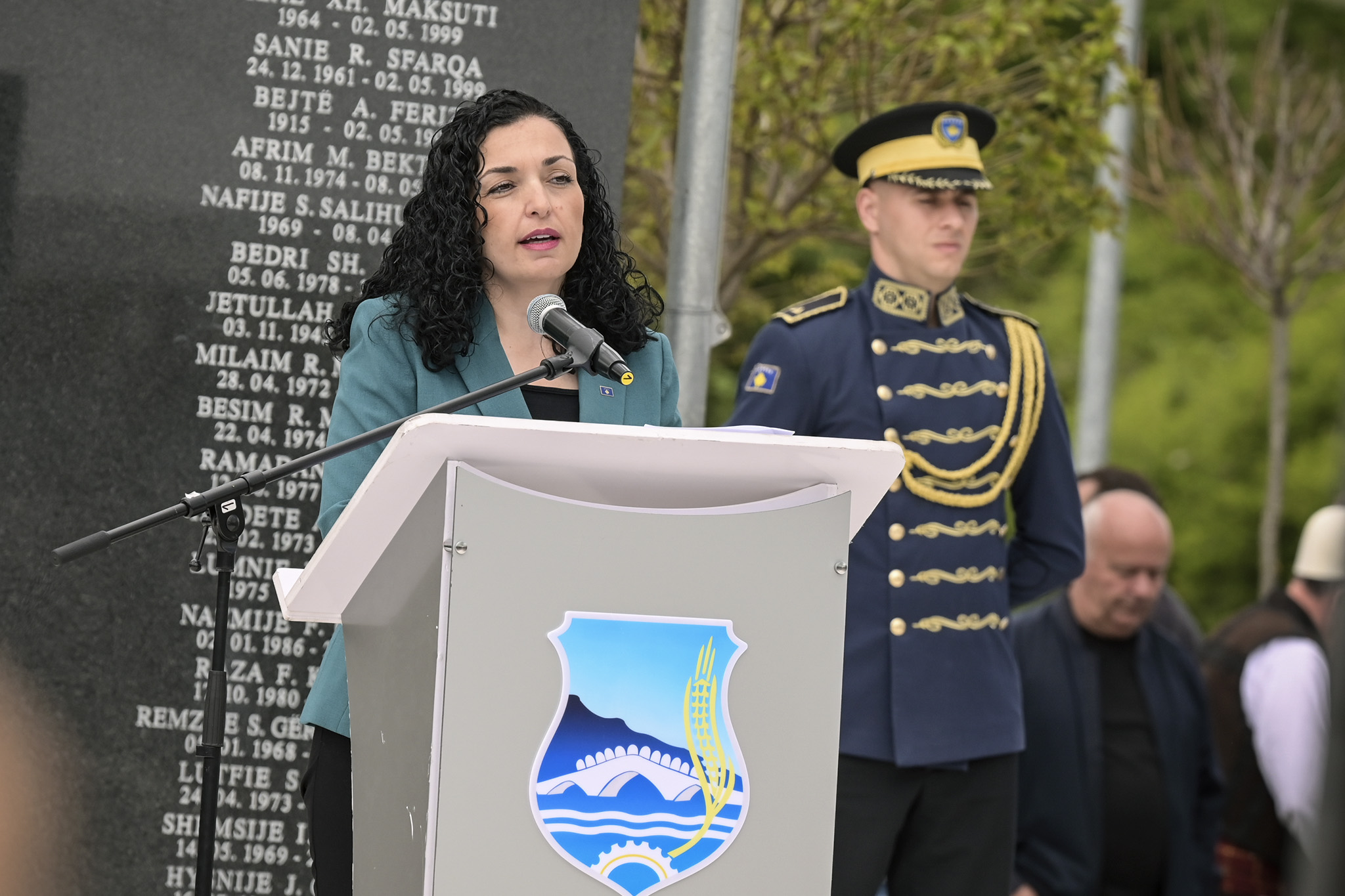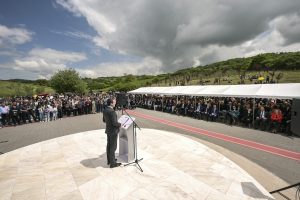Studime, 2 May 2024
“Today we honor those killed on May 2, 1999, who are no longer with us. We also honor you who are here and remain strong despite suffering a great loss during the war. In addition to the sacrifice of the fallen, we appreciate the resistance of the people We bow down to the people of Kosovo who did not bow down to the terror of Serbia,” said the Prime Minister of the Republic of Kosovo, Albin Kurti, at the Memorial Academy of Studies in the Municipality of Vushtrri.
In front of those present, the Prime Minister said that without justice for the Albanian victims, for the children and elders of the Study, Serbia cannot be ranked among the states and nations that build their future on human values. “The extent of the crime forced NATO to intervene. Justice cannot be given for such a measure of crime,” he said.
Prime Minister Kurti emphasized that under the weight of heavy memories, as a people, we have chosen to be strong, united in pain but also in hope. “Let us continue to stand united in the memory of our loved ones, the commitment to justice, and inspired by the smiles of children. The children who are born and are growing in freedom are a powerful testimony of what we have achieved and the hope we carry every day,” he added.
“We will continue to come here every year to honor the 116 civilians, as we will do in every place in Kosovo where crime has left our people dead, and our pain alive. Until the universal respect of justice, towards the concrete payment of justice, the state tribute will be systematic”, said the Prime Minister.
In honor of 116 Albanian civilians, from 11 to 84 years old, killed by the armed forces of Serbia in Studime, Prime Minister Kurti, together with President Osmani laid a common wreath and paid tribute at the cemetery.
Prime Minister Kurti’s complete speech:
Honorable President of the Republic of Kosovo, Mrs. Vjosa Osmani Sadriu
Honorable Minister of Defense of the Republic of Kosovo Mr. Ejup Macedonci,
Dear Ministers and Deputy Ministers,
Representatives and managers of state institutions,
The honorable mayor of the Municipality of Vushtrri, Mr. Ferit Idrizi,
Dear Mayor of the Municipality of Mitrovica. Mr. Bedri Hamza,
Dear members of the Assembly of the Republic,
Honorable former Prime Minister Haradinaj,
Family members of former president Thaçi,
Dear veterans and invalids of the Kosovo Liberation Army,
Dear mothers and other family members of the nation’s martyrs and martyrs,
Dear attendees,
Ladies and gentleman,
Sisters and brothers,
Today we honor those killed on May 2, 1999, who are no longer with us. We also honor you for being here and staying strong despite suffering great loss during the war. In addition to the sacrifice of the fallen, we value the resistance of the people. We bow to the people of Kosovo who did not bow to the terror of Serbia.
Here, in less than two hours, 116 people were killed, from 11 years old to 84 years old, unarmed civilians, refugees from most of the villages of Shala and Vushtrri district. The murders were carried out by Serbian police and paramilitary forces, but the gathering of people from the entire Shala region was done by the regular Serbian army. Witnesses say they heard them communicating on the radio about the number of people killed, saying “it’s not enough, move on”.
The terrible massacre of Studime did not happen alone. It ranks between the massacres against Albanians and after the Srebrenica genocide.
In the winter and spring of 1999, there were so many massacres committed by Serbia in Kosovo. Therefore, especially these months we dedicate ourselves to the commemoration of the victims of the massacre of Krusha Vogël and Krusha i Madhe, the massacre of the Berisha family, the massacre of Izbica, the massacre of the Bogujevci, Duriqi and Llugaliu families, the massacre of Beleg in Deçan, of Pastasel in Rahovec , of Kralan, Rrezalla, Lubizhda, Dyzi, Meja and Korenica. Yesterday we were in Nabërgjan in Peja to commemorate those killed on May 1, and today we are here together at Studime e Vushtrri.
The number of massacres is proof of the genocidal character of the Serbian state. The current president of the Serbian state is the minister of propaganda at that time. So we are clear in our will for justice and in our demand for a proper assessment of the genocide. The crimes happened a quarter of a century ago, but 25 years are less than the years of the Serbian president’s career.
The lack of punishment of Serbian criminals is the second fault on the victims after the representation of the Serbian state by the minister of Milosevic. So we need justice for the victims and not respect for the state that has not understood anything because it denies everything. Full and universal recognition of the massacres is needed in the conditions when it is Serbia that again undertakes initiatives such as the terrorist aggression in Banjska or the deployment of forces at the border of our country. In the face of state terrorism, there is only one action: to make justice a universal necessity for all victims. This is the first condition for peace. This is the condition for the real stabilization of the future in the region.
Today’s Serbian state denies the massacres carried out by its soldiers and policemen on the basis of genocidal strategies under the name “Horseshoe” and as a result mass murders and deportations, ethnic cleansing of Kosovo.
Without justice for the Albanian victims, for the children and elders of the Study, Serbia cannot be ranked among the states and nations that build their future on human values. The scale of the crime forced even NATO to intervene. Justice cannot be denied for such a crime.
Dear attendees,
The horror of May 2, 1999 caused irreversible loss and irreparable damage.
For this and other crimes committed by Serbia, for the first time, in the population census, we included the questionnaire on the damages from the 1998-99 war in family economies and human losses. This recording, which continues until May 17, along with an overview of the present, will also jointly provide us with an evidence of the past.
In order to accurately document all crimes throughout Kosovo, we have now operationalized the Institute of Crimes Committed during the War in Kosovo. Therefore, I call on everyone, each and every one, to contribute with data and evidence in these two processes so important for our Republic, for our history and for our future.
Dear sisters and brothers,
Under the weight of heavy memories, as a people, we have chosen to be strong, united in pain but also in hope. We have survived and built a new life.
Let us continue to stand united in the memory of our loved ones, committed to justice, and inspired by the smiles of children. The children who are born and are growing up in freedom are a powerful testimony of what we have achieved and the hope we carry every day.
We are continuing to build and strengthen the Republic of Kosovo together, for those who gave their lives and for those who will live after us, making sure that no other generation experiences the terror that we lived through.
We will continue to come here every year to honor the 116 civilians, as we will do in every place in Kosovo where crime has left our people dead, and our pain alive. Until the universal honor of justice, towards the concrete payment of justice, the state tribute will be systematic. Massacres and victims are as much our state and national issues as they are issues of justice and international sensitivity. Eternal remembrance and necessary justice is our calling and our way.
Those who fell for freedom will never be forgotten. Long live the strength and hope they left us! Long live our freedom-loving people!
Glory!

